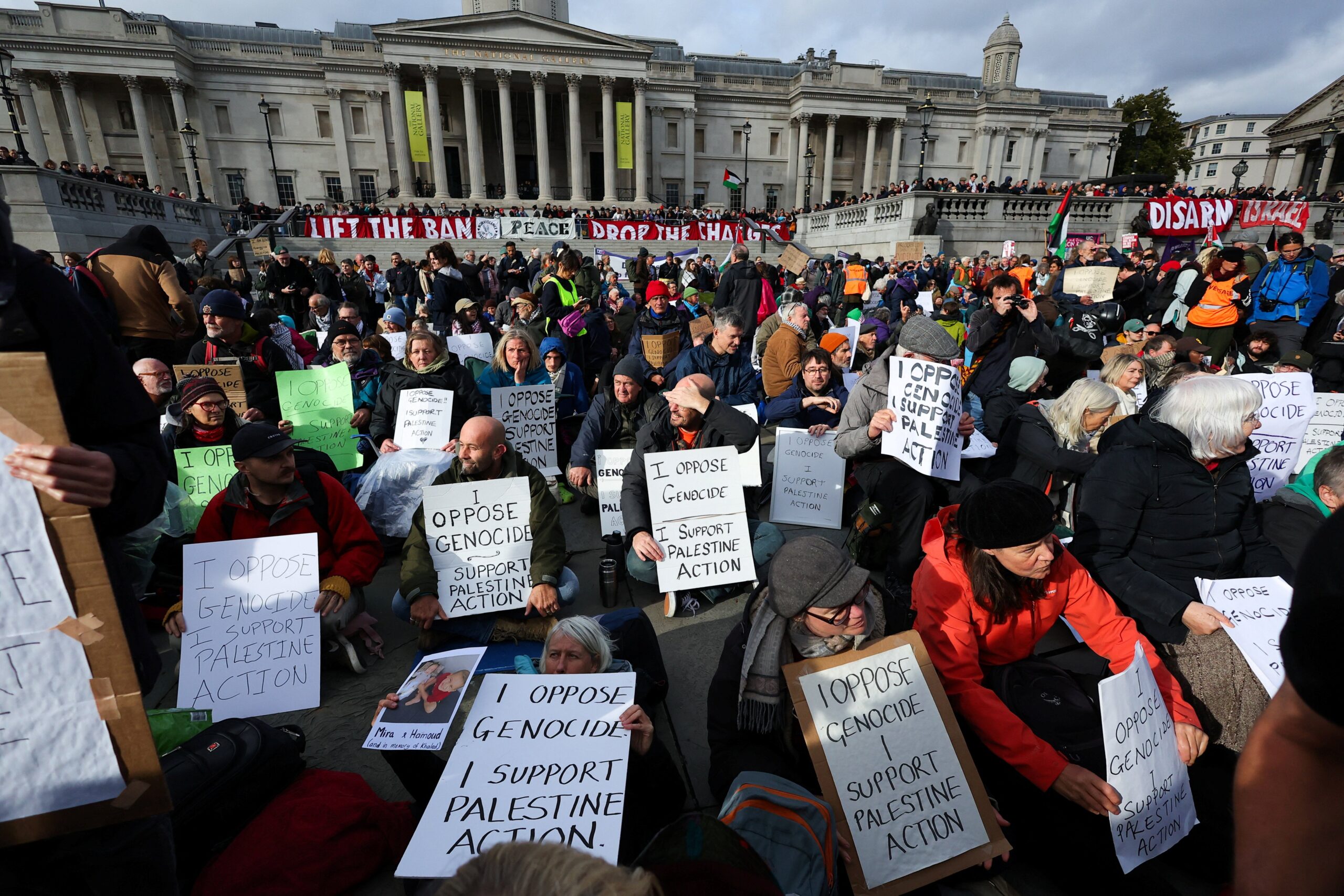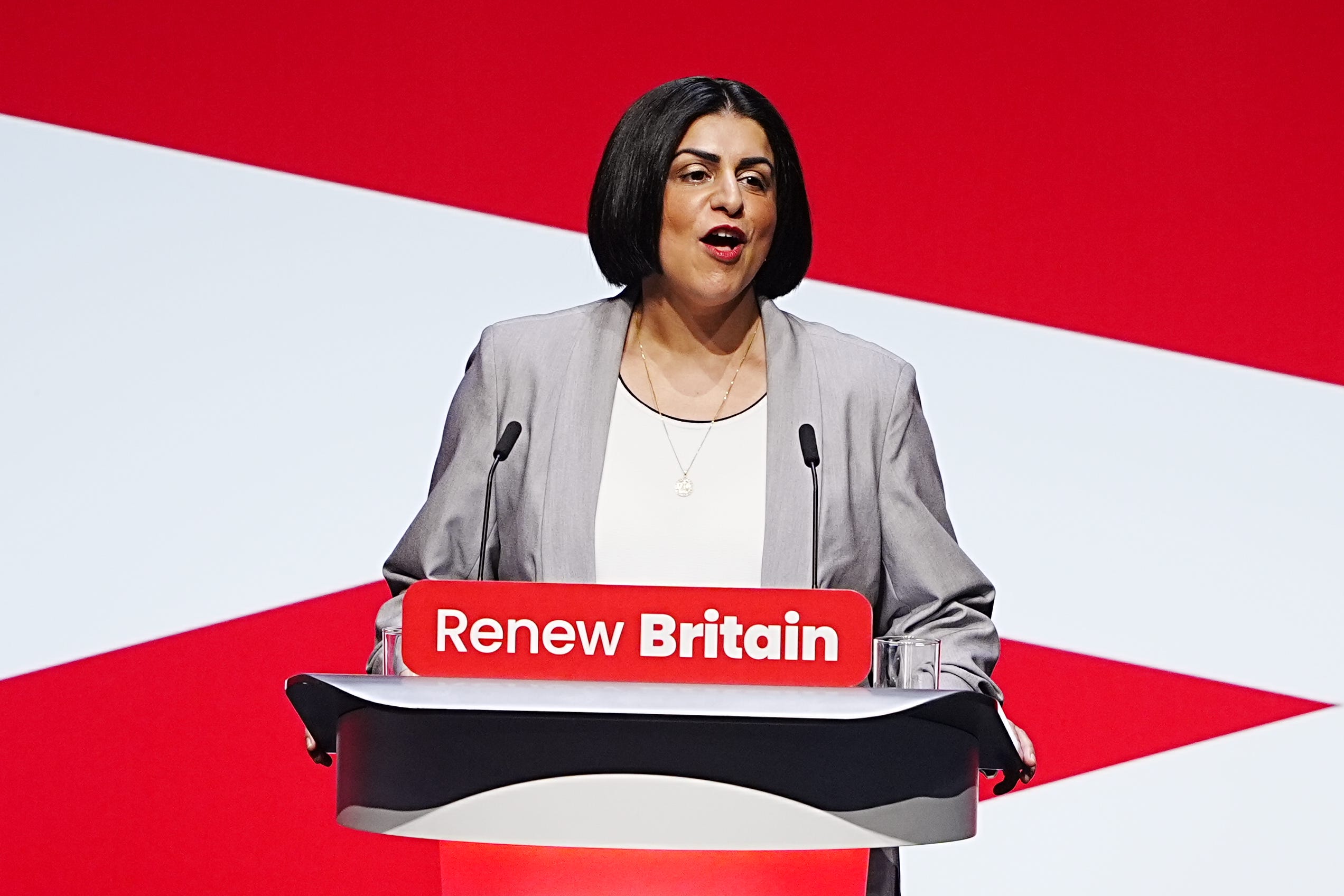Police are to be given greater powers to and restrict repeated protests, the home secretary has announced, hours after hundreds were arrested at a Palestine Action demonstration in London.
The event went ahead despite calls from Keir Starmer and others in the wake of the terror attack on a synagogue in Manchester during which two people were killed.
The home secretary Shabana Mahmood said repeated large-scale protests had caused “considerable fear” for the Jewish community.

She said: “The right to protest is a fundamental freedom in our country. “However, this freedom must be balanced with the freedom of their neighbours to live their lives without fear.
“Large, repeated protests can leave sections of our country, particularly religious communities, feeling unsafe, intimidated and scared to leave their homes.
“This has been particularly evident in relation to the considerable fear within the Jewish community, which has been expressed to me on many occasions in these recent difficult days.
“These changes mark an important step in ensuring we protect the right to protest while ensuring all feel safe in this country.”
In the wake of the arrests in London on Saturday, Amnesty International said it should not be the job of the police to arrest people “peacefully sitting down”, and that the arrests amounted to a breach of the UK’s human rights obligations.
As part of the new crackdown ministers will amend Sections 12 and 14 of the Public Order Act 1986 to explicitly allow the police to take account of the cumulative impact of frequent protests on local areas.
The home secretary will also review existing legislation to ensure powers are both sufficient and being applied consistently by police forces – this will include powers to ban protests outright.

On Saturday officers arrested hundreds of people at a Palestine Action protest in London, days after the Manchester synagogue attack.
Met Police said 492 people were arrested at the protest in support the proscribed group, classed by the UK government as a terror organisation earlier this year.
Most of the arrests were made at Trafalgar Square, where around 1,000 protesters sat silently, some holding signs backing Palestine Action, despite calls by Sir Keir and police chiefs to stay away following the terror attack in Manchester.
The Met said many of those arrested had to be carried out of the square after refusing to walk, with each person taking up to five officers to move away safely. Some were pictured holding their hands in the air defiantly.
Paula Dodds, chair of the Metropolitan Police Federation, said officers were “physically exhausted” but continue to be called on “to facilitate these relentless protests”. “And we are coming under attack for doing so. How can this be right?” she asked.
She added: “There aren’t enough of us. Hard-working police officers are continually having days off cancelled, working longer shifts and being moved from other areas to facilitate these protests.
“Our concentration should be on keeping people safe at a time when the country is on heightened alert from a terrorist attack. We are emotionally and physically exhausted. What are politicians and senior police officers going to do about it?”
Event organiser Defend Our Juries said that among those arrested was 79-year-old Elizabeth Morley, a Jewish woman and daughter of a Holocaust survivor.
In what it called the biggest ever defiance of the ban on Palestine Action, people of a mixture of ages sat for the silent vigil, before taking out pens and writing signs in support of the group. Some read: “I oppose genocide. I support Palestine Action.”
At the same time, around 100 people gathered in Manchester city centre for a similar demonstration, organised by Greater Manchester Friends of Palestine.
The prime minister had urged protesters to “respect the grief of British Jews”, while Jewish figures called the action “phenomenally tone deaf” after two people were killed in the attack in Manchester on Thursday.
Politicians and senior police officers also joined calls for the events not to go ahead. Scotland Yard chief Sir Mark Rowley warned the rallies would “likely create further tensions and some might say lack sensitivity” in the wake of the attack, while Chief Constable of Greater Manchester Police Sir Stephen Watson urged would-be attendees to “consider whether this is really the right time”.
Sir Mark added that protests are “drawing valuable resources away from the communities of London at a time when they are needed most”. Police forces have deployed extra officers to synagogues and other Jewish buildings to offer protection and reassurance in the aftermath of the attack, with hundreds of extra officers around Manchester in particular.
